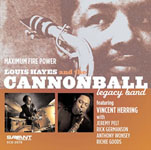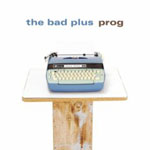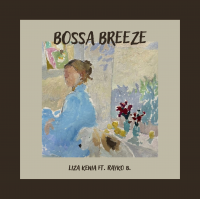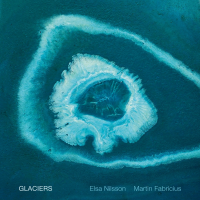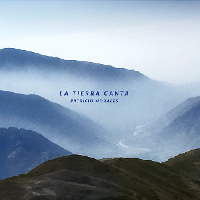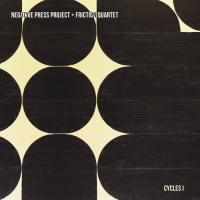Home » Jazz Articles » Multiple Reviews » Chucho Valdes And The Birth Of Irakere
Chucho Valdes And The Birth Of Irakere
The first five releases include four albums led by or featuring pianist Chucho Valdes which trace the genesis of the seminal jazz-and-roots band Irakere, from Chucho Valdes & Combo in 1964, through the Orquesta Cubana De Musica Moderna in the late 1960s, and onto some of the first recordings by Irakere itself in the mid 1970s. The fifth disc is rather different: a 1987 album by the rumba band Los Papines with the late pianist and Bueno Vista Social Club star Ruben Gonzalez.
A second batch of five CDs, due for release later this summer, will include similarly hard-to-find albums by Bebo Valdes, Cachao, Chico O'Farrill and Los Amigos.
 Chucho Valdes & Combo
Chucho Valdes & Combo
Jazz Cuba Volume 1
Rumor Records/Warner Jazz
2007 (1964, 1981)
Son of the pianist and bandleader Bebo Valdes, Chucho Valdes' mid 1960s band included three of the musicians who would go on to form Irakere some ten years later—Valdes himself on piano, Paquito D'Rivera on saxophones and clarinets, and Carlos Emilio Morales on electric guitar.
This 1964 album is number-one-with-a-mango, Latin jazz heaven from start to finish—sunny, dancefloor friendly, improvisation centred music featuring a breathtakingly virtuosic frontline. Valdes' inventive arrangements draw from bop and hard bop, chachacha and other Cuban dance styles, European classical music and African-American gospel. There's less santeria-derived roots percussion work than was to come with Irakere, but supple congas and timbales rhythms, rather than kit drums, are used to drive most of the tunes forward.
Valdes and D'Rivera are already fully on song, and the biggest revelation is guitarist Morales, captured playing a fluent, pure jazz style which he returned to all too infrequently with Irakere. His abandoned, rapid-fire, single note runs are amongst the most magical passages on the disc. When he plays the themes in agile, exhilarating unison with D'Rivera, you're reminded of saxophonist Stan Getz's live recordings with guitarist Jimmy Raney in the early 1950s.
The final track, "Rabo De Nube," was recorded in 1981, and is a little masterpiece: a mid tempo, expansive and declamatory, five minute solo piano showcase with flute and guitar (both uncredited) introduced towards the end.
After this album, you might reasonably imagine you'd heard the best Jazz Cuba could offer. But not so fast....
 Guapacha With Chucho Valdes & Combo
Guapacha With Chucho Valdes & Combo
Jazz Cuba Volume 4
Rumor Records/Warner Jazz
2007 (1964)
Singer Amado Borcela, better known as Guapacha, made only one album (tracks 1-9 here) before his death in 1966 aged just 32. His rich, smoke-cured tenor style, born in Cuban guaracha music, was influenced by US vocalist Billy Eckstine, whose mastery of scat vocalese Guapacha matched—and arguably, with his genius for rhythmic invention, even bettered.
Made in the same year and with the same lineup as that featured on the Chucho Valdes & Combo disc, the album includes Guapacha's definitive vocal version of Valdes' "Indestructible" along with another eight, top drawer bop-meets-Cuba cuts. There's less instrumental solo space available than on the previous album, but virtually every track contains a few memorable choruses from D'Rivera, Valdes, trombonist Alberto "El Men" Giral or, blissfully, Morales, who plays in the same casually virtuosic, impassioned style.
The final five tracks were recorded circa 1963 with Bebo Valdes' big band. There's not so much explicit jazz content in the arrangements, with the scales tipped further towards exuberant mambo, chachacha and rumba, but Guapacha's resonant timbres and intoxicating vocalese are unchanged.
Real jazz singing requires a vocalist who can improvise like an instrumentalist, and Guapacha was amongst the select minority of so-called jazz singers to shine at that. Sometimes, truly, the great die young.
 Orquesta Cubana De Musica Moderna
Orquesta Cubana De Musica Moderna
Jazz Cuba Volume 10
Rumor Records/Warner Jazz
2007 (1967, 1970)
In 1967, Chucho Valdes disbanded his septet and—with D'Rivera and Morales—joined the state-sponsored, national showpiece big band, Orquesta Cubana De Musica Moderna, whose brief, seemingly, was to fuse Cuban big band music, jazz and elements of the Western symphonic tradition.
OCMM recorded under a variety of musical directors and with varying degrees of success. Here the relentlessly portentous arrangements are reminiscent of Stan Kenton's oeuvre—which will delight some listeners and equally certainly dismay others. To my ears derivative, pretentious, irritatingly episodic, bombastic and cheesy, the charts—which prioritise themselves over soloing space—confine D'Rivera to section work, Morales to Duane Eddy imitations (when you can hear him at all), and Valdes, more often than not, to an excruciatingly prominent Wurlitzer organ.
It should surprise no-one that as soon as they were able Valdes, Morales and D'Rivera jumped ship for Irakere, and we will do the same....
 Irakere
Irakere
Jazz Cuba Volume 5
Rumor Records/Warner Jazz
2007 (circa 1973)
Other OCMM refugees who joined Valdes, Morales and D'Rivera in founding Irakere included trumpeters Jorge Varona and Arturo Sandoval, bassist Carlos Del Puerto, drummer Enrique Pla and percussionist Oscar Valdes. Of the original lineup, only tenor saxophonist Carlos Averhoff and percussionists Armando Cuervo, Carlos Barbon and Jorge Alfonso came from outside OCMM. Together they represented the cream of Cuban jazz and roots players, and in its 1970s and 1980s glory days Irakere was one of the most exciting little big bands anywhere in the jazz world.
The ten tracks included on this disc come from a variety of sessions, though their precise provenance is unclear. The rather inadequate liner notes which accompany the Jazz Cuba series are on this disc particularly vague: the outer sleeve says the tracks were recorded in 1976 and the inner sleeve says 1970, but Irakere was actually formed in 1973, so none of that is very helpful. Valdes' Fender Rhodes work suggests the tracks were recorded in the early electric Miles Davis and Weather Report years, circa 1973.
Whatever its exact recording dates, the music offers the heady brew which distinguishes the best of Irakere—a high proof cocktail of bop, jazz rock, Cuban percussion roots, Osibisa-like Afrorock and a few calypso and classical spices (the latter, most notably, on the opening live track, Mozart's "Adagio Para Clarinete," played in jazz mode by D'Rivera on the soprano saxophone). There are rough-edged call and response vocals, complex santeria-derived drum and percussion lines, fruity baritone saxophone solos, brilliant bass clarinet and bop alto saxophone ones from D'Rivera, soaring high note trumpet breaks from Varona and Sandoval, urgent rock ostinatos, spacey electric keyboards and pretty flute counterpoints.
The music never sits still, and nor will the listener—this is a thrilling slice of early Irakere.
 Los Papines & Ruben Gonzalez
Los Papines & Ruben Gonzalez
Jazz Cuba Volume 7
Rumor Records/Warner Jazz
2007 (1987)
And now for something completely different. Los Papines were formed by the four Abreu brothers as Papin Y Sus Rumberos in the mid 1950s, when Batista, Meyer Lansky and the mob still ruled Cuba and Havana's nightlife was geared towards foreign gamblers and sex tourists.
Still active fifty years on, the group morphed into Los Papines post-Batista, in 1963, with a vocals and percussion-dominated rumba style which on this 1987 album continues to sound pretty authentic, if a little anachronistic. The disc purports to be a collaboration with pianist Ruben Gonzalez, but it's unclear how many tracks the future Bueno Vista Social Club star actually graces: some don't appear to include any piano, and fewer still attach much importance to the instrument.
The only track which undeniably features Gonzalez is the closing, approaching nine minutes long, descarga (jam session). But it's not prime Gonzalez, although there's some competent soloing from bassist Jorge Reyes and flautist Richard Egues, and most listeners will probably prefer to return to the Chucho Valdes, Guapacha and Irakere albums, as I intend to right now.
Tracks and Personnel
Chucho Valdes & Combo
Tracks: Bebada; Descarga Pa Gozar; Tanganika; Mambo Influenciado; Atomo; Indestructible; Guasabenado Vo; Varadera Cha; Congo; Nino; Descarga De Kike; Pilin Pilon; Por La Libre; Descarga De Monte Adentro;Rabo De Nube.
Personnel: Chucho Valdes & Combo (tracks 1-14): Chucho Valdes: piano; Paquito D'Rivera: saxophone and clarinet; Julio A. Vente: flute; Alberto "El Man" Giral: trombone; Carlos Emilio Morales: electric guitar; Enrique Kike Hernandez: bass; Emilio Del Monte: drums. Chucho Valdes Quintet (track 15): Chucho Valdes: piano; other personnel not credited.
Guapacha With Chucho Valdes & Combo
Tracks: Melodia En Abril; Oye Rebeca; Pudiera Ser; El Mozambiqueno; Retozon; No Creo En ti; No Tienes Tema; Mi Existir; Indestructible; Una Cierta Sonrisa; Por Regla; Chachacha Bebop; Amor Eterno; Cancion Del Alma; Quien Baila Mejor.
Personnel: Guapacha With Chucho Valdes & Combo (tracks 1-9): Amado Borcela "Guapacha": vocals; Chucho Valdes: piano; Paquito D'Rivera: saxophone and clarinet; Julio A. Vente: flute; Alberto "El Man" Giral: trombone; Carlos Emilio Morales: electric guitar; Enrique Kike Hernandez, Luiz Rodriguez: bass; Emilio Del Monte: drums. Guapacha With Bebo Valdes Orquesta (tracks 10-15): Amado Borcela Guapacha: vocals; Bebo Valdes: piano; other personnel not credited.
Orquesta Cubana De Musica Moderna
Tracks: Que Bella Es Cuba; La Comparsa; Ay Mama Ines; El Manisero; Las Perlas De Tu Boca; Tema Para Un Africano; Recordando El Blues; Almendra; El Niche (Aja Bibi); Te Vas A Casar (Pobre Del Pobre); El Name Con Bacalao; Guajira Guantanamera; Pastilaa De Menta.
Personnel: Luis Escalante, Leonardo Timor, Andres Castro, Jorge Varona, Manuel El Guajiro Mirabal, Adaberto Trompetica Lara & Arturo Sandoval: trumpet; Modesto Echarte, Leopoldo Pucho Escalante, Luis Outomuro, Antonio Linares, Juan Pablo Torres: trombone; Paquito D'Rivera, Julian Fellove, Jesus Lam, Braulio Babin Hernandez, Rolando Sanchez: saxophone; Chucho Valdes: piano; Orlando Cachaito Loopez, Carlos Del Puerto, Fabian Garcia Caturla: bass; Enrique Pla, Guillermo Barreto: drums; Carlos Emilio Morales, Sergio Vitier, Jose Jaurrieta: guitar; Oscar Valdes Jr., Roberto Garcia, Oscar Valdes Campos: percussion; Luis Aragu: tympani; Rafael Somavilla: conductor.
Irakere
Tracks: Adagio Para Clarinet; Chekere Que Son; 38 Y Medio; En Nosotros; Juana 1600; Moja El Pan; Este Camino Lagro; Xomara Mayoral; Iya; Summertime.
Personnel: Chucho Valdes: piano; Paquito D'Rivera: saxophone and clarinet; Jorge Varona, Arturo Sandoval: trumpet; Carlos Averhoff: tenor saxophone; Carlos Emilio Morales: electric guitar; Carlos Del Puerto: bass; Enrique Pla: drums; Oscar Valdes, Armando Cuervo, Carlos Barbon, Jorge Alfonso: percussion.
Los Papines & Ruben Gonzalez
Tracks: Ese Me La Llevo Yo; Nostalgia; El Bobito De Mi Cuadra; Salsa Criolla; Amo Esta Isla; Abuela No Se Puede Evitar; Amor En Festival; Popurri Mexicano; Canto A Matanzas; Papines En Descarga Con Ruben Gonzalez.
Personnel: Los Papines: Ricardo Papin Abreu, Luis Abreu, Alfredo Abreu, Jesus Abreu: vocals, percussion; Ruben Gonzalez: piano; Richard Egues: flute; Jorge Reyes: bass; other personnel not credited.
Tags
PREVIOUS / NEXT
Chucho Valdes Concerts
Support All About Jazz
 All About Jazz has been a pillar of jazz since 1995, championing it as an art form and, more importantly, supporting the musicians who make it. Our enduring commitment has made "AAJ" one of the most culturally important websites of its kind, read by hundreds of thousands of fans, musicians and industry figures every month.
All About Jazz has been a pillar of jazz since 1995, championing it as an art form and, more importantly, supporting the musicians who make it. Our enduring commitment has made "AAJ" one of the most culturally important websites of its kind, read by hundreds of thousands of fans, musicians and industry figures every month.



